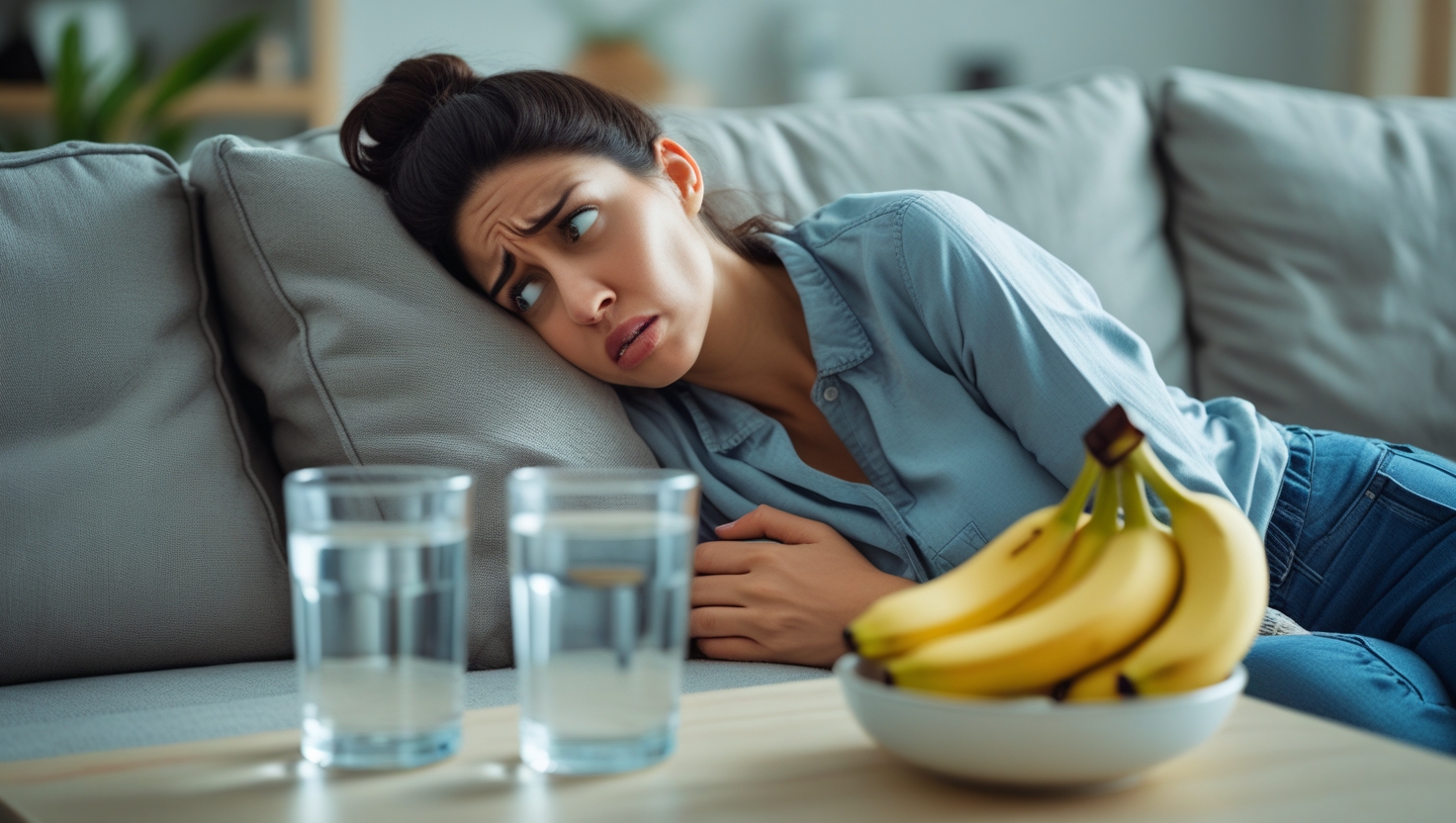Introduction: Stomach Flu: Symptoms, Duration & Quick Relief Tips
What you’re about to learn in this book is Stomach Flu: Symptoms, Duration & Quick Relief Tips. Viral gastroenteritis, another name for the stomach flu, is a highly contagious infection that affects the intestines and stomach. With symptoms like nausea, vomiting, diarrhoea, and cramping in your stomach, it can come on unexpectedly and leave you feeling awful.
This article will teach you everything you need to know about the stomach flu, including its most prevalent symptoms, how long it usually lasts, and the best rapid relief techniques to help you recover quickly, whether you’re already ill or just want to be ready.
Related Post: Top Gut Health Supplements to Support Faster Recovery
What Is the Stomach Flu?
The stomach flu is not the same as influenza, or the real flu, despite its name. Viruses like norovirus or rotavirus are typically the cause of stomach flu, which is contracted by consuming contaminated food, water, or coming into contact with an infected person.
Common Symptoms of Stomach Flu
The severity of the symptoms might vary and often manifests 1–3 days after exposure. The following are the most typical symptoms:
- Nausea
- Vomiting
- Diarrhea (often watery)
- Stomach cramps or pain
- Fever (mild)
- Headache
- Fatigue or weakness
- Muscle aches
Depending on the virus type, age, and immune system, these symptoms might range from minor to severe.
How Long Does the Stomach Flu Last?
Although the stomach flu usually lasts one to three days, it can occasionally last up to ten days, particularly in small children or elderly people. This is a broad timeline:
Day 1–2: Diarrhoea, vomiting, and nausea appear suddenly
Days 3–4: Weakness and dehydration may persist even if symptoms subside.
Days 5–7: Most healthy people fully recover
It’s crucial to see a doctor if symptoms persist for more than a week.
Quick Relief Tips for Stomach Flu
Although the stomach flu has no known treatment, the following practical advice will help you manage your symptoms and hasten your recovery:
1. Stay Hydrated
Vomiting and diarrhea cause fluid loss. Sip on:
- Water
- Oral rehydration solutions (ORS)
- Coconut water
- Clear broths
Avoid caffeinated, sugary, or alcoholic drinks.
2. Follow the BRAT Diet
Stick to bland foods like:
- Bananas
- Rice
- Applesauce
- Toast
These are easy on the stomach and help firm up stools.
3. Rest as Much as Possible
Give your body time to recover. Steer clear of strenuous activities and, if necessary, take naps.
4. Use Over-the-Counter Medications (If Needed)
- Antidiarrheals such as Imodium’s loperamide
- Acetaminophen for body pain or fever
Note: Before giving children medication, always get their doctor’s approval.
5. Practice Good Hygiene
- Wash hands frequently
- Disinfect surfaces
- Avoid preparing food for others while sick
When to See a Doctor
Seek medical attention if you observe:
- Dehydration symptoms include dark urine, dizziness, and dry mouth.
- High fever (more than 39°C or 102°F)
- Diarrhoea with blood
- Symptoms that last longer than five to seven days
- If an old person, a child, or someone with a compromised immune system is impacted
Frequently Asked Questions (FAQs)
Q1. Is stomach flu contagious?
It is easily transferred by contaminated food, surfaces, or intimate contact with an infected individual.
Q2. Can I prevent stomach flu?
Yes, by frequent hand washing, avoiding tainted food or water, and sanitising frequently touched surfaces.
Q3. What’s the difference between food poisoning and stomach flu?
While stomach flu is a viral illness, food poisoning is typically brought on by bacteria from contaminated food. Although symptoms often overlap, stomach flu is contagious.
Q4. Can antibiotics treat stomach flu?
No. Since a virus is the culprit, antibiotics don’t work. The most effective treatment is supportive care.
Q5. Is vomiting always a symptom of stomach flu?
No, some people might not throw up, but have slight cramps or diarrhoea.
Conclusion
Although the stomach flu can strike hard, recovery is typically rapid and simple with the correct care and quick relief measures. The most important things are to consume light foods, stay hydrated, and give your body time to rest. Do not be afraid to consult a doctor if your symptoms intensify or last longer than a few days. You will be more equipped to manage and recover from the stomach flu if you are aware of its symptoms, length, and available treatments.

